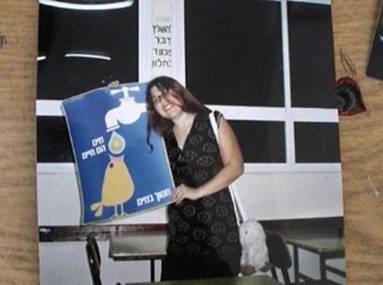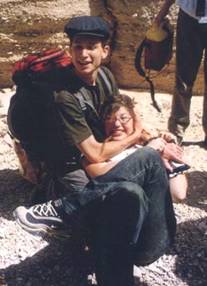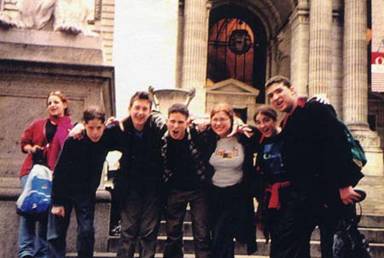Human rights in an age of terror
Steven Hawkings, on a recent visit to Israel, said that current situation is much worse than it was 10 years ago. I agree. I also acknowledge, to my sorrow, that the grim picture portrayed by the previous speaker, my colleagues Jacob Katriel, is true. The human rights of Palestinians are violated on a regular basis by, among others, the Israeli authorities and Israeli settlers. The Israeli courts and its public attorney said so too.
We differ in that Jacob is much more optimistic than me. He seems to belive that if some of us, say the Israelis, will act rationally and with compassion towards our Palestinians brethren, tolerance and peace will reign in the Middle East: Iraqui Sunnis will stop killing Iraqui Shia and vice versa; Christians and Shia will live in harmony and love in Lebanon; Nasrallla will let the red-cross visit prisoners of war; Tehran will build a tolerance museum to commemorate the holocaust; Ahmadinajad will extend a hand of peace to Israel and America and will convert the Iranian nuclear efforts to Nuclear medicine; Isamel Hania, the Palesinian premier will offer his hand to Olmert, the Israeli premier, and will honor agreements signed by his predecessors. The Palestinians will volley bouquets of flowers on the Israeli town of Shderot; and Imams at mosques will preach brotherly love to all human beings, Christians, Jews and agnosts.
Israel is not quite normal, like Switzerland, Canada or the US, and it is wrong and nave to view the human right issues of individuals as decoupled from the general sorry state of a region which is rife with terror, chaos, ethnic tensions and religious and civil wars.
Jews in Israel suffer daily from endemic and rampant terror, they are outnumbered and under existential threat of fundamental Islamists, and under threat of genocide by the new Hitler of our time, Iran’s president, Ahmadinajad. Many Israelis believe that a nuclear holocaust is imminent and likely. It is useful to bear this apocalyptic view of the situation in mind when one deals with the worries of a Yale cardiologist that he may not get an entry visa to Israel on his next visit.
I want to remind you that the restrictions imposed on Palestinians, graphically described by Katriel, were the reaction of the Israeli government to the wave of suicide bombing that plagued us three years ago. The measures are arguably draconic, but they appear to be effective. We can, once again, let our children ride buses.
I want to conclude by telling you a personal story: The story of Tal Kehrman. Tal Kerhrman was a friend and classmate of my son Yonatan. An optimist and happy child who loved to draw camels and had a rosy and optimistic view on life.
The following pictures speak for themselves.

Tal Kerman 
Tal Kehrman and my son Yonatan 
The high-school trip to the US, Yonatan in the middle next to Tal 
Bus number 37 
Terror 
17 victims, 13 of them children under 20
Municipal bus 37 is the bus that takes kids to school in Haifa. It now takes my youngest son, Yoav, to school. It is the bus that my son Yonatan used to take when he was still a high school student with Tal. It is also the bus the Tal took on one fateful afternoon, four years ago.
Let her memory be blessed.
* Address to the Human rights session at the Lebowitz meetings, Rutgers Dec. 2006

